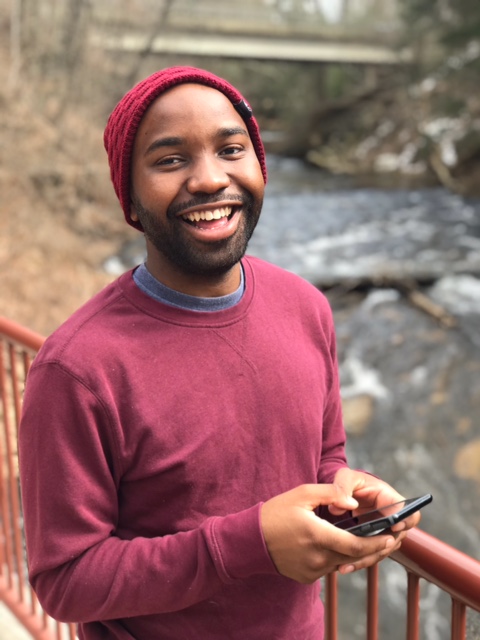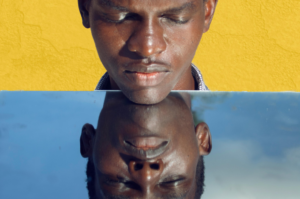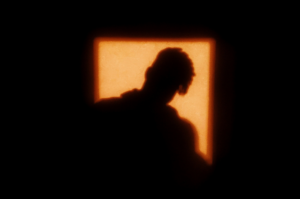
Dear IsheAnesu,
You recently turned two, June 5th, and I was not there for your birthday. At first, it did not affect me that much, until I started to think about what to get you for a gift. I was sitting in a subway from Manhattan to Brooklyn, tired, frustrated, feeling alone, and thinking about you. I was also listening to Oliver Mutukudzi and he was singing “Kusina Mai Hakuendwe.” I am not sure if you speak Shona but I hope that you do. I told your father that you must primarily because in moments of feeling lonely and homeless I find Shona gives me solace and offers me a home to rest—if only temporarily.
“Kusina Mai Hakuendwe” is a Shona idiom that loosely translates to: One must not go to places where their mother is not. When I was learning Shona—I struggled with learning Shona but that is a story for another time—this was one of those idioms I easily forgot and never really enjoyed. It was not colorful or witty or a tongue twister like some of the other ones I was learning; it was boring, dull, and simple. Anyone could remember it and anyone could easily say what it meant when asked. I wanted the more challenging ones. However, now as I sit on this subway, counting down my stops, sweltering in the New York summer heat which envelopes you in a thick sheet of humidity, looking at people huddled over their phones, headphones plugged in, standing foot to foot, shoulder against shoulder, I realize that the person who must have first pronounced that idiom knew this type of loneliness that I am feeling. They did not just know it in the way that we grow up knowing snow in Zimbabwe, they knew it in the way that you will one day know loss and heartbreak. It is a feeling more than a knowing; one must experience it to be able to know it, but to be able to succinctly envisage the loneliness that comes with leaving, all you require is a particular kind of loss and emptiness that I hope you never know intimately as I and many others born in my generation have come to.
Another reason I never liked this idiom is because your grandmother and I were never close, and I grew up without her being present, so I found the concept of sticking close to your mother puzzling. I would think to myself, My own mother had gone to a faraway place where her mother was not, and she had left me, so what did this idiom even mean. But with age comes understanding, Kura Uone—I will write to you about that one too—and my understanding now is that my mother never wanted to leave me or your father but was forced to. She realized that the only way to keep her children alive, clothed and in school was for her to leave and find the money.
To a large extent your father and myself and your Uncle Tinashe turned out fine: we were fed, educated and pursued our dreams, but we were and are still lacking. What we lack is what we lost the day my mother flew off to the United Kingdom; to be clear, it is not her fault that we lost this thing—honestly it is none of our faults, it simply just happened. This thing that we lost is the thing that the people who said, Kusina Mai Hakuendwe, were trying to make sure that their children and loved ones never lost. It is something that I hope you never lose, but if you do, then I hope you know that you will not be alone even when it feels like you are.
One person described the process of leaving one’s home country or place of permanent residence as deracination. In Geography, deracination is a process of uprooting a plant from its natural or current habitat, but in people matters, it becomes the process of being uprooted from all that has made us who we are, for better or worse. Everyone in your family, on your father’s side, responded differently to the uprooting of us. Your grandfather, as I am sure you will come to know, left Zimbabwe when he was 16 and only returned when he was 28. He left because Zimbabwe was still Rhodesia, and pursuing his own dreams was not something he could do because White British settler farmers had decided that land and wealth was more important than human life. Your grandfather grew up being told that because he was born a Black, Ndau boy in 1958, he could not amass to anything more than the help. Obviously, he wanted more and the only way he was going to get more was through the gun, because in some cases you must fight fire with fire. And indeed after sleeping in foreign lands for a decade, Zimbabwe was born in 1980. In this new country, your grandfather could now exist uninhibited, and his children could dream of being anything they wanted. However, watching your friends die by the bullet, or because of food poisoning, or because of the elements, takes its toll on anyone, and it took a toll on your grandfather. I grew up knowing him as a lovely, fun, loud man, but he never let me out of his sight and he never spoke about the ten years he spent away.
Sometimes I asked, and he would say, “One day when you are older I will tell you,” and when he did tell me, I came to see why he never spoke about it often. Sometimes we want to protect our loved ones from the chill of the world for as long as we can, and I used to hate this natural human tendency until you came into this world. Inasmuch as I want to tell you how cold the world can be, I also hope that you will take time before you experience this reality.
Another way your grandfather responded was by vowing that he would never leave Zimbabwe. In his own words, he “had fought for this country and nothing would ever again force him out.” It was this principle that would years later lead to a rift between him and your grandmother, a rift that would also affect our family forever. When the time came to discuss who would leave the family and go to the UK—and I shall one day tell you this story, too—your grandmother contends that your grandfather refused to go. At first I never understood why he, “the man of the house,” refused to leave and allowed your grandmother to go. But if what your grandmother says is true, because I was too young to corroborate it, then I also now understand why my father refused to leave again. You see, as I said, leaving is difficult, and in saying this I am being overly simplistic.
Kusina Mai Hakuendwe because there is no coming back once you go, and my father knew this. There is no returning even if you decide to go back. There are some things that can never be put back together no matter how much we try. My mother came to realize this, unfortunately, and she spent the greater part of her life trying to undo what could not be undone. When she was away, for a decade as well, I spoke to her every weekend because that was when she was not working and had enough time to talk. I remember she would ask me who my friends were, how I was doing in school: she wanted to know everything. Being the child I was, I found these weekly calls mundane and time-wasting, I wanted to play with my friends, ride my bike, read my books.
Your grandmother left when I was six, and by the time I was eight I had adjusted so well to her not being there that it never occurred to me that these talks were important because my mother wanted to hear what she could not see. Now, as I think about what kind of cake you got for your birthday, as I beg your father for pictures, I understand the loss and sadness that comes with yearning to see what we know we can only hear or, these days, see on a screen.
I received the picture of you on your birthday, but it still was not enough, there was something missing—what did your laughter sound like, and how much do you weigh now? These were questions no amount of calling and pictures could answer. And this loss affected my mother in ways that I shall never fully understand.
Your Uncle T had left when I was nine and your father left when I was twelve. Then, watching them leave, I wanted to leave too, so badly, so when the time came I was excited not knowing what I was getting myself into. When I was eighteen I finally left.
Even though I left in pursuit of a “better education and life,” it was not a voluntary choice. I—like your father, uncle, grandmother and grandfather—had no choice but to leave. I hope that you can have the luxury to leave because these two things are fundamentally different. Remember I mentioned deracination earlier? Well, when people are forced to leave, they usually experience immense pain and shock, but do not fully feel it until they have enough time to afford feeling. This delay in processing is what I will call our trauma, and it comes in different forms, manifests in multiple ways. It is painful because the leaving is not the kind where you could voluntarily return, but one where you must be away for necessity, and this broke us all differently. We yearned to go back, and for your grandparents, they went back only to be greeted with more heartbreak, more struggle, more unmet dreams, because being away had changed them into people who no longer had roots that could be nurtured by the soil they used to call home.
Your grandmother named you IsheAnesu and it means God Is With Us. She said she wanted a name that would protect you and the family, but I have come to learn that there are some things that even God, god and our ancestors together cannot protect us from. However, draw strength in knowing that we have come before you and are always rooting for you. When we can, we will always support you and fight for you; sometimes you will see it, sometimes you will feel it, sometimes you will not even notice, and that is fine. Just know that we are here even in the times where you must walk alone. I am still away and not sure where life will take me, but I hope it will lead me to you.
Your loving Uncle,
Keith.
About the Writer:
 Keith Mundangepfupfu is a young Zimbabwean poet, passionate about words, the power can they have on human beings and the world. Keith has been published in Brittle Paper. Follow him on Twitter at @Whiplash16 and on Instagram @Tino_Munda to read more of his work.
Keith Mundangepfupfu is a young Zimbabwean poet, passionate about words, the power can they have on human beings and the world. Keith has been published in Brittle Paper. Follow him on Twitter at @Whiplash16 and on Instagram @Tino_Munda to read more of his work.









COMMENTS -
Reader Interactions